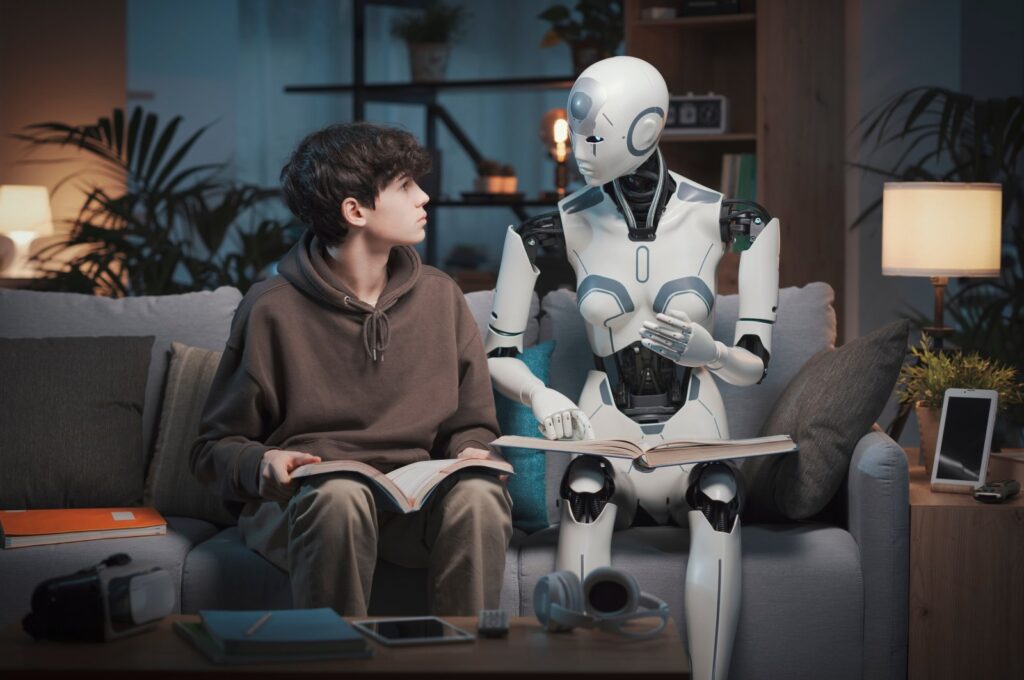With the presence of artificial intelligence in every aspect of life and the expectation of robots in living spaces soon, many people wonder how artificial intelligence will change the field of education.
Professor Gonca Kızılkaya Cumaoğlu, Vice Dean of Yeditepe University's Faculty of Education and Head of the Department of Computer Education and Instructional Technologies, reviewed the opportunities that artificial intelligence will offer in the field of education and provided information on sustainable artificial intelligence. why
“Education about artificial intelligence needs to start early; we need to prepare children for the new world of artificial intelligence,” Cumaoğlu said.
Reiterating that Turkey has started serious measures on this issue since 2020, Cumaoğlu said: “Firstly, TÜBİTAK Artificial Intelligence Institute (BİLGEM-YZE) was established. Then, in 2021, the Presidency enacted the National Artificial Intelligence Strategy, the first national strategy document in the field of artificial intelligence.”
“The main goal was to create a sustainable artificial intelligence ecosystem. Other important issues were training specialists in the field, encouraging social adaptation and regulation, and accelerating workforce turnover.”
Noting that an unpredictable world awaits us, Cumaoğlu noted: “When Artificial General Intelligence (AGI) is reached, which is not a very distant future, experts believe that in the world “There will be a serious employment problem.”
“The first thing our children will need is a new literacy. From artificial intelligence literacy to new media and digital literacy, we will have no barriers to educating ourselves in the remaining subjects,” he added.
systematic error
Pointing out that changes in the education system are usually made and implemented quickly, Cumaoğlu said: “However, I think there will be a top-down break.”
“Because while we are thinking about taking action, it seems that changes related to employment that will radically affect social life, first of all the university system and then an education system that redefines all the needs will go
“We can also say that artificial intelligence has integrated itself into the education system, without us integrating it into the education system. For example, the Council on Higher Education has endorsed the use of artificial intelligence in scientific research and publication activities. Published an ethical guide on the use of intelligence. In other words, we have a guide for using the subject without including it in the curriculum, because as researchers, our students and we are actively using it.”
Limit opportunities
Pointing to the opportunities that artificial intelligence will offer in addition to systemic changes in learning and learning environments, Cumaoğlu explained: “Personalized education with artificial intelligence, educational methods according to individual needs, learning pace. and can improve the learning process by developing content. Students' interests and abilities
“In this model, specific learning paths and goals are determined, taking into account the student's strengths and weaknesses, thus ensuring that the student learns in the most efficient manner. And feeds quickly.” Learn by providing feedback, closely monitoring the individual's progress, can provide guidance and support for deficiencies.”
“It supports individualized learning. On the other hand, it can help teachers in the context of material development. For example, they can create learning materials tailored to students' interests and strengths. Fact It's that all this can be done quickly and with quality. Learning analytics is a significant opportunity to make the teaching process more effective in school, if we look at it from a slightly larger perspective. Learning to work with analytics will become much easier with artificial intelligence, a research field that analyzes student performance data to manage learning and environments for data-driven decision-making and early intervention. enables,” he added.
Cumaoğlu also provided information on what should be covered in each age range.
“In early childhood (ages 3-6), basic digital skills and technology familiarity can be acquired through educational games and applications.
“During the primary school period (ages 7-12), algorithmic thinking can be acquired through simple programming languages such as basic programming and coding skills. Safe internet use, information seeking and evaluation skills can be taught for digital literacy. Skills for understanding, evaluating, and producing media content can be addressed to acquire new media literacy.
For the middle school period (ages 12-15), the basic concepts and working principles and basic applications of artificial intelligence can be taught. Online ethics, security and privacy issues can be covered. In terms of media and information literacy, information verification, evaluation of news sources and media criticism can be included in the program.
In high school (ages 15-18), applications of artificial intelligence, data analysis and machine learning, web development for more advanced web applications, mobile application development and cyber security can be covered.
For new media literacy, digital media production, source evaluation, privacy and security, copyright and ethical use, digital footprint management, social media management and online communication skills should also be assessed. In this process, families and teachers should guide children and create awareness about the safe and ethical use of technology,” he explained.
